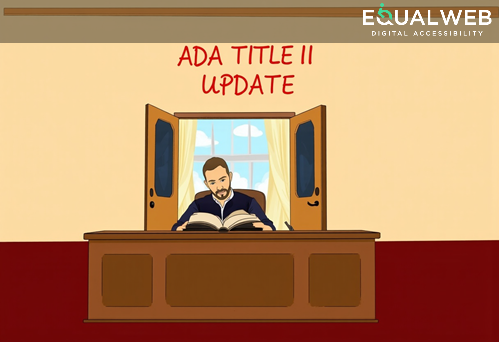What Changed in Trump’s DEI Rollback
One of the administration’s first actions was an executive order eliminating DEIA programs across federal agencies.
This has led to:
- The removal of accessibility-related content from government websites.
- Closure or budget cuts to DEIA offices that supported accessibility initiatives.
- Uncertainty about future enforcement of digital accessibility requirements.
While Section 508 and the
Americans with Disabilities Act (ADA) remain in effect, the lack of enforcement could slow progress toward digital inclusivity. Businesses and organizations that rely on federal guidance may now face less support in maintaining compliance.
Does This Change Web Accessibility Laws?
The legal framework remains intact, but lack of enforcement is a risk. Section 508 still requires federal agencies to comply with accessibility standards, but with DEIA offices dismantled, compliance efforts may weaken.
For businesses, this means:
- ADA lawsuits are still a reality – The rollback does not remove legal accountability.
- Proactive compliance is now more critical than ever – A lack of government oversight does not eliminate risks.
- A greater role for private-sector initiatives – With reduced federal enforcement, the responsibility for accessibility shifts more toward businesses and advocacy groups.
Even without strong regulatory oversight, users, advocacy groups, and legal actions will continue driving web accessibility forward.
Why Businesses Should Stay Committed to Accessibility
Organizations that assume they can ignore
web accessibility due to reduced oversight risk major consequences.
Here’s why staying compliant remains essential:
Legal Consequences
The rollback of DEIA enforcement does not repeal
web accessibility laws. Courts have consistently ruled that the ADA applies to digital spaces, meaning lawsuits will continue.
Accessibility-Related Lawsuits Are Increasing
Businesses continue to face legal challenges for inaccessible websites. Many lawsuits result in costly settlements, and courts have ruled against companies that fail to meet accessibility standards.
User Experience and Ethical Responsibility
Prioritizing accessibility benefits everyone.
Ensuring that websites and digital tools are inclusive leads to:
- Better usability – Accessible websites provide a smoother experience for all users.
- Stronger reputation – Companies that promote inclusivity build consumer trust.
- Competitive advantage – Accessible platforms attract a wider audience, including users with disabilities.
What Businesses Should Do Now
Maintain WCAG Compliance
Regardless of policy changes, Web Content Accessibility Guidelines (WCAG) remain the gold standard for digital accessibility.
Conduct Regular Accessibility Audits
Perform internal or third-party audits to identify compliance gaps before they escalate into legal issues.
Implement Accessibility by Design
Building accessibility into websites and digital tools from the start is more cost-effective than making fixes later.
Follow Best Practices Beyond Legal Requirements
Organizations should commit to accessibility as a core business practice, not just a legal checkbox.
Bottom line: The rollback of DEIA programs does not remove the necessity of web accessibility compliance. Companies must remain committed to inclusion, both to avoid legal risks and to ensure equal access for all users.




